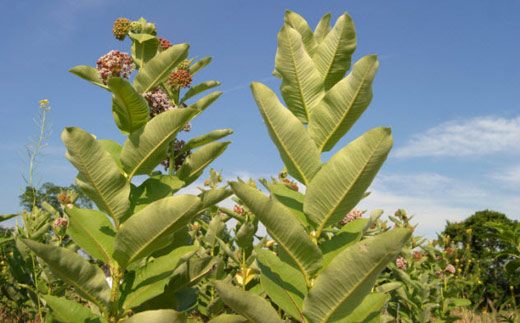当前位置: Language Tips> 英语学习专栏

4. Henry Ford’s Weeds 亨利•福特的野草
Henry Ford was a picky eater who usually had nuts or raisins in his pocket. In his youth, he was largely uninterested in food and mostly moved it around on his plate to give the appearance of eating it. This changed when he started to perceive his body as a machine and his stomach as a boiler that he needed to give the right fuel.
The act of eating was more practical than sensual, and Ford experimented with wild weeds as a source of nutrition. His dietary experiments caused misery to his business associates, although they were better received by his friend George Washington Carver, who was of a like mind on that sort of thing.
Even though Ford received a salary of almost $1 million a year, he preferred a diet of “roadside greens,” which were essentially edible weeds that Ford gathered from his garden or outside. According to biographer Sidney Olson: “There is nothing quite like a dish of stewed burdock, followed by a sandwich of soybean bread filled with milkweeds, to set up a man for an afternoon’s work.”
The weeds that Ford collected were often lightly boiled or stewed and then used in salads or sandwiches. However, the diet seemed to pay off because Henry Ford was rarely sick and lived to the ripe old age of 83.
Vocabulary
1. eccentric: (人、行为等)古怪的,怪癖的。
2. notable: 显著的,著名的;bizarre: 古怪的,怪诞的;notion: 想法,念头。
3. prompt: 引起,激起。
4. Silicon Valley: 硅谷;instructor: 指导者;slaughter: 屠宰,宰杀。
5. lobster: 龙虾。
6. initially: 开始,起初。
7. composer: 作曲家。
8. mushy: 烂糊的,糊状的;consume: 吃,喝;stir: 搅拌。
9. inspect: 检查,检验;crack: 打破,使破裂。
10. woe to sb.: 某人将要遭殃(用于警告某人如果做某事会有麻烦)。
11. scolding: 责骂。
12. pelt: 投掷,用力扔。
13. 与往常一样,在“狂轰滥炸”即将来临之前,贝多芬的佣人便开始准备快速撤离,然后这些砸向她脑袋的猛击就全都打在她背上,黏稠的蛋黄和蛋清洒她一身,简直像熔岩浆一样。retreat: 撤退;cannonade: 连续而猛烈的炮轰;decapitated: 砍头的;battery: 连续猛击;intestine: 肠;veritable: 真正的,名副其实的;lava stream: 熔岩浆。
14. Gerald Ford: 杰拉尔德•鲁道夫•福特,美国第37任副总统和第38任总统。
15. trivia: 无关紧要的细节,琐事;Richard Nixon: 理查德•尼克松(1913—1994),美国第37任总统;cottage cheese: (酸奶酪制成的)农家鲜乳酪;ketchup: 番茄酱。
16. quip: 俏皮地说,巧妙地说;elegant: 精美的,雅致的。
17. pineapple: 菠萝;resignation: 辞职。
18. aficionado: 爱好者;appealing: 吸引人的,有感染力的。
19. Air Force One: 美国总统的专机,也常被人们称为“空中白宫”;staffer: 职员,工作人员。
20. garnish: 装饰菜;celery: 芹菜;radish: 小萝卜。
21. martini: 马丁尼酒;Soviet:(前)苏联;premier: 总理,首相。
22. slur: 含糊地说。
23. overindulged: 吃(喝)得太多的;tipsy: 微醉的。
24. Henry Ford: 亨利•福特(1863—1947),美国汽车工程师与企业家,福特汽车公司的建立者;weed: 野草,杂草。
25. picky: 吹毛求疵的,爱挑剔的;nut: 干果,坚果;raisin: 葡萄干。
26. 在他小的时候,他对食物一点也不感兴趣,因此他经常把盘子里的食物搅乱,假装自己已经吃过了。
27. perceive: 认为,意识到;boiler: (蒸汽机的)锅炉。
28. sensual: 感觉的,感官的;nutrition: 营养。
29. 他的饮食实验给他的生意伙伴带来了痛苦,然而他的朋友乔治•华盛顿•卡弗可以接受,他对此与亨利有着相同的看法。
30. edible: 可食用的。
31. 生物学家西德尼•奥尔森说道:“用一盘水煮牛蒡,外加一个乳草大豆面包三明治来开始一下午的工作,没有什么比这更好了。”stew: 炖,煮;burdock: 菊科牛蒡属植物,尤指牛蒡;soybean: 大豆;milkweed: 乳草属植物。
(来源:英语学习杂志 编辑:丹妮)
上一篇 : 迎新三步曲
下一篇 :
关注和订阅


电话:8610-84883645
传真:8610-84883500
Email: languagetips@chinadaily.com.cn